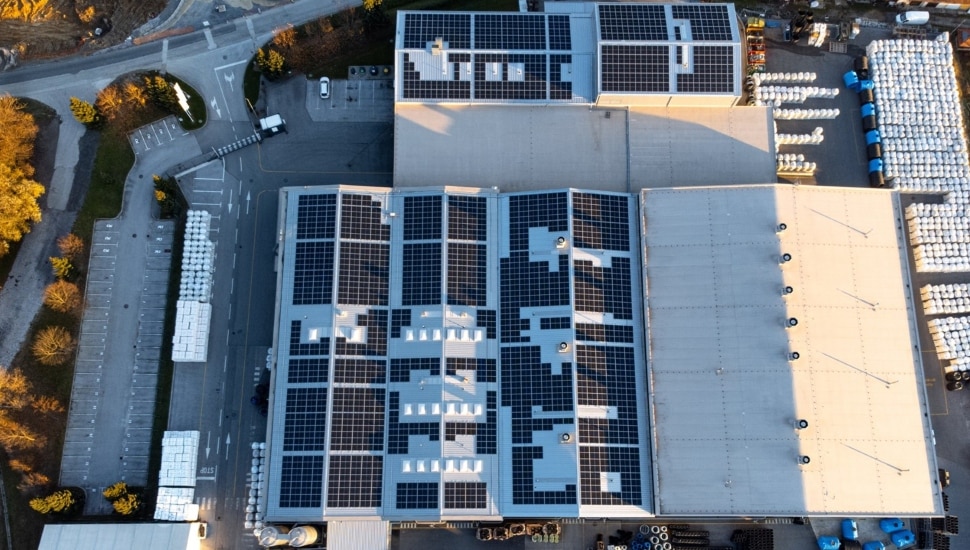Maximizing Solar Savings: A Guide to Three Key Financial Benefits

With staggering energy costs and an increasing awareness of the impact of greenhouse gas emissions, home and business owners are leaning into clean and renewable energy opportunities such as solar power generation.
Fortunately, solar system installation is more affordable than ever. Several financial opportunities — including rebates, grants, and tax credits — combined with expanding financing opportunities make the return on your investment faster and more attainable.
1. Net Metering
Net metering offers a return on your production of excess energy, ensuring you use the energy you need — and you get paid for the energy you don’t.
Coordinated through your utility company, net metering pays residential and commercial solar system owners for excess electricity that is generated and sent to the utility’s electrical grid. System owners are compensated through payment credits on utility bills, which can be used to offset future bill statements.
Weather and other conditions can impact a solar system’s peak performance. And at times, your energy use will outweigh what you’ve generated. Through net metering, your extra electricity is fed to your utility’s grid — and they give you credits for when you need to draw electricity back out.
The arrangement is symbiotic: Clean energy never goes to waste, and you’re compensated for everything your system generates. In turn, you reap significant energy savings and better control over your energy expenses.
2. Solar Renewable Energy Certificates (SRECs)
While net metering often comes in the form of utility credits and offset of utility bills, SRECs are an additional revenue stream that can accelerate the return of your investment.
SRECs are earned by home or building owners for every 1,000 kilowatt-hours (kWh) or one megawatt-hour (MWh) of solar energy produced. Certificates are then sold to energy suppliers at market value to help meet their mandatory renewable energy requirements. The price for each SREC is dependent on the current market supply and demand.
State energy programs require electricity providers to derive a percentage of their energy from renewable sources. Because your certificates represent a positive environmental impact, utility providers can purchase your SRECs to assist them in reaching this requirement.
Understanding the value and fluctuation of SREC prices, as well as the application and registration requirements, are all crucial to making the most out of the SREC program. We encourage working with an experienced team like Spotts, Stevens, and McCoy and Practical Energy Solutions to ensure you’re receiving the highest return for your SRECs.
3. Solar Investment Tax Credit (ITC)
The Federal Investment Tax Credit offers a steep federal tax credit based off your total solar project cost. The credit is not a deduction or rebate, but rather a dollar-for-dollar reduction in taxes that an individual or company would otherwise owe.
The ITC was enacted in 2006. But passage of the Inflation Reduction Act in 2022 extended the tax credit timeline and successfully increased the credit amount received. Almost all commercial and residential solar projects initiated within the next 10 years will return at least 30 percent of project costs in federal tax credits. However, intentional planning and decision making can bring you a credit return of up to 70 percent of total project cost.
New! Non-taxable entities and direct payments. With the expansion of the ITC through the Inflation Reduction Act, for the first time ever non-taxable entities can now receive the available tax credits and bonuses in the form of “Elective Payment.” This is most applicable to local and state governments, schools, and nonprofit organizations. Similarly, tax-paying entities with low tax liability can now sell their tax credit, producing a direct payment option.
How to make the most of financial opportunities
Consider onboarding a solar expert team to ensure you right-size the system and make the most of every incentive available. Proper planning, negotiation, and analysis of rebates and financing opportunities can make installation of a solar system not only a low-risk investment but a high-value opportunity.
Perfecting your financial recipe is what we do. We pair technical engineering backgrounds with unrivaled expertise in the clean energy sector and nearly a decade of experience in energy to ensure your clean energy plan is not only best for a financial return, but also the best for reaching your long-term goals.
For assistance, contact us at paul.spiegel@ssmgroup.com or 610-609-8313.
___________
Spotts, Stevens, and McCoy is a regional engineering, environmental, and surveying firm that serves local and global clients. We engineer solutions for a better world. Our work touches everyday life — from the water you drink, to the air you breathe, to the buildings and communities where you live, work, and play. Learn more about Spotts, Stevens, and McCoy.
Connect With Your Community
Subscribe to stay informed!
"*" indicates required fields






































![95000-1023_ACJ_BannerAd[1]](https://vista.today/wp-content/uploads/2023/03/95000-1023_ACJ_BannerAd1.jpg)












